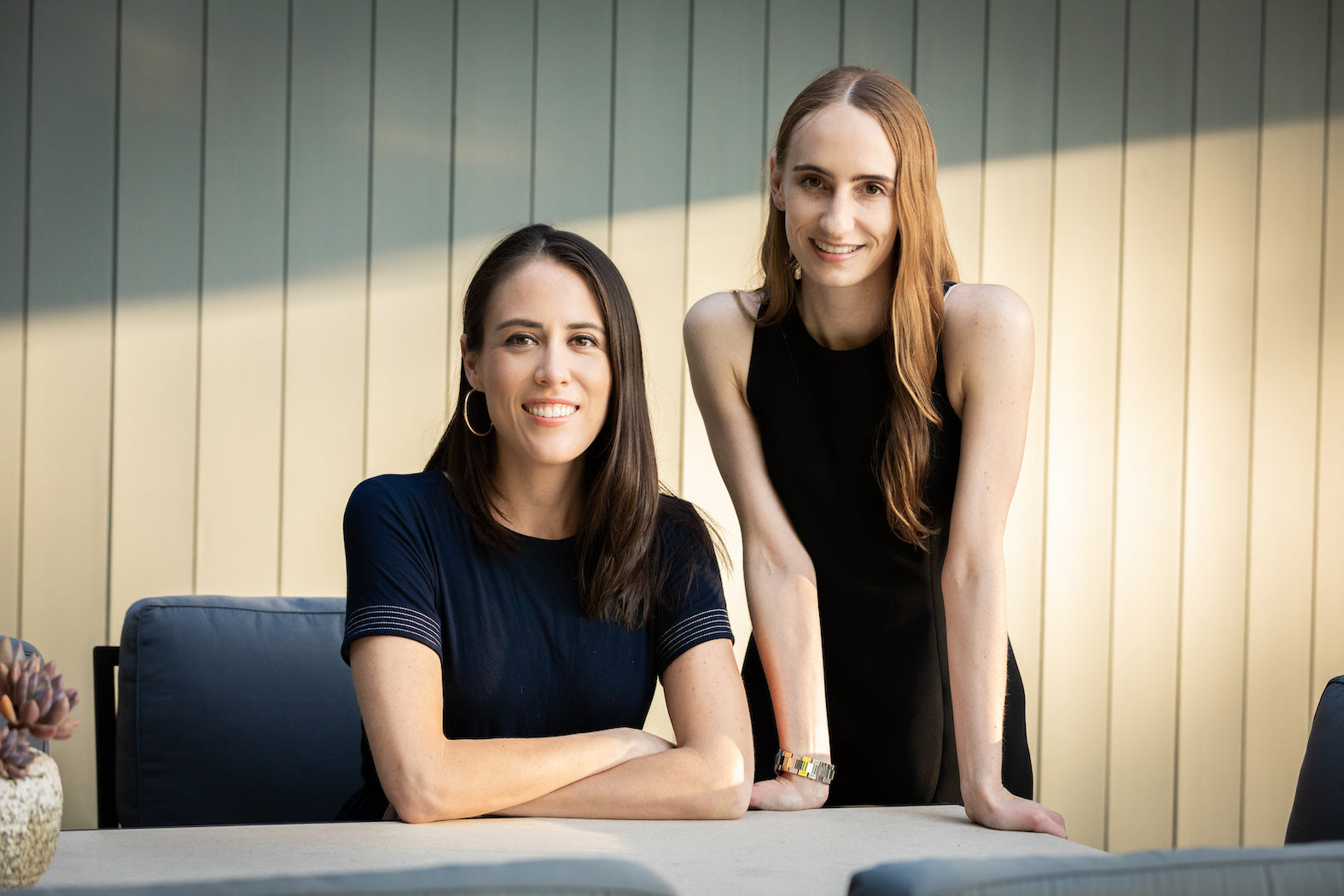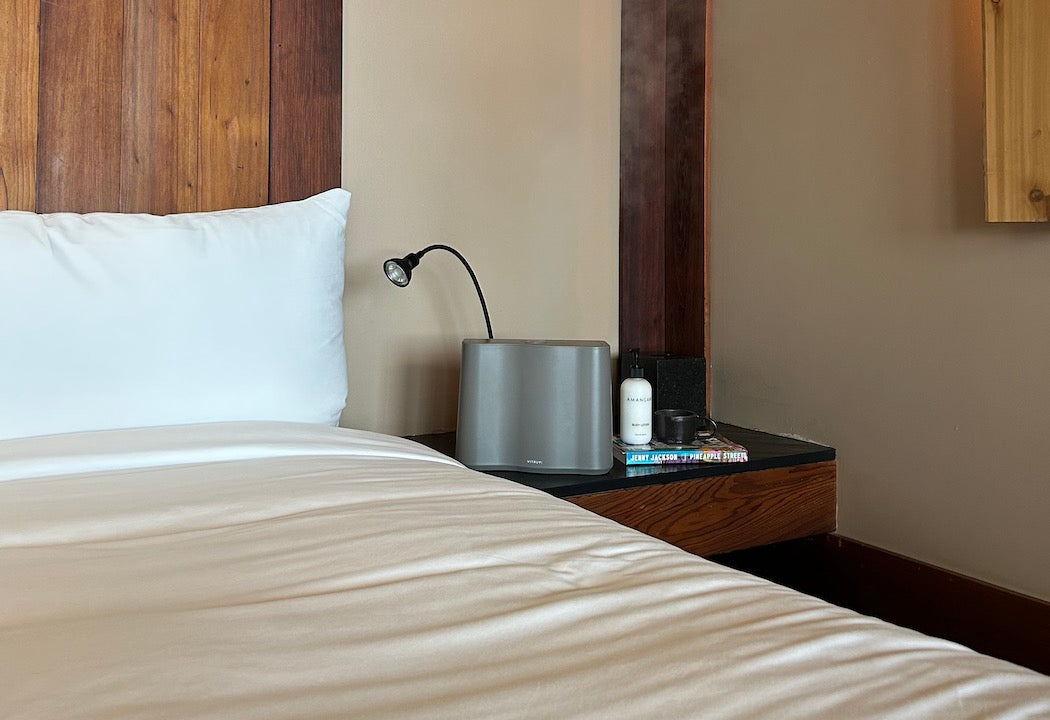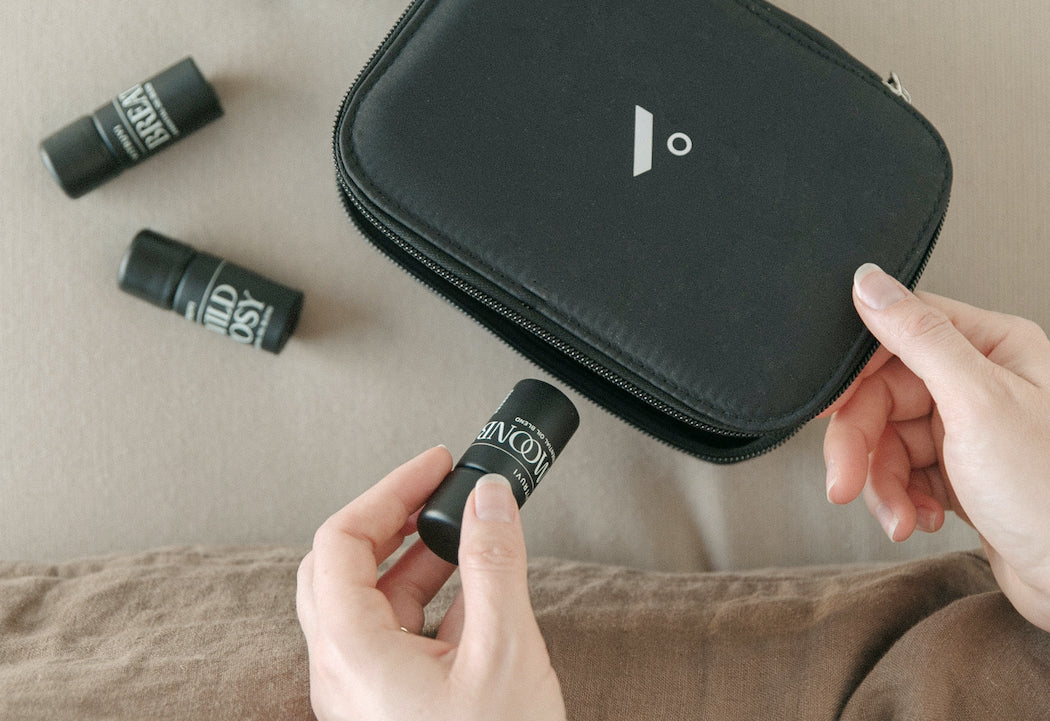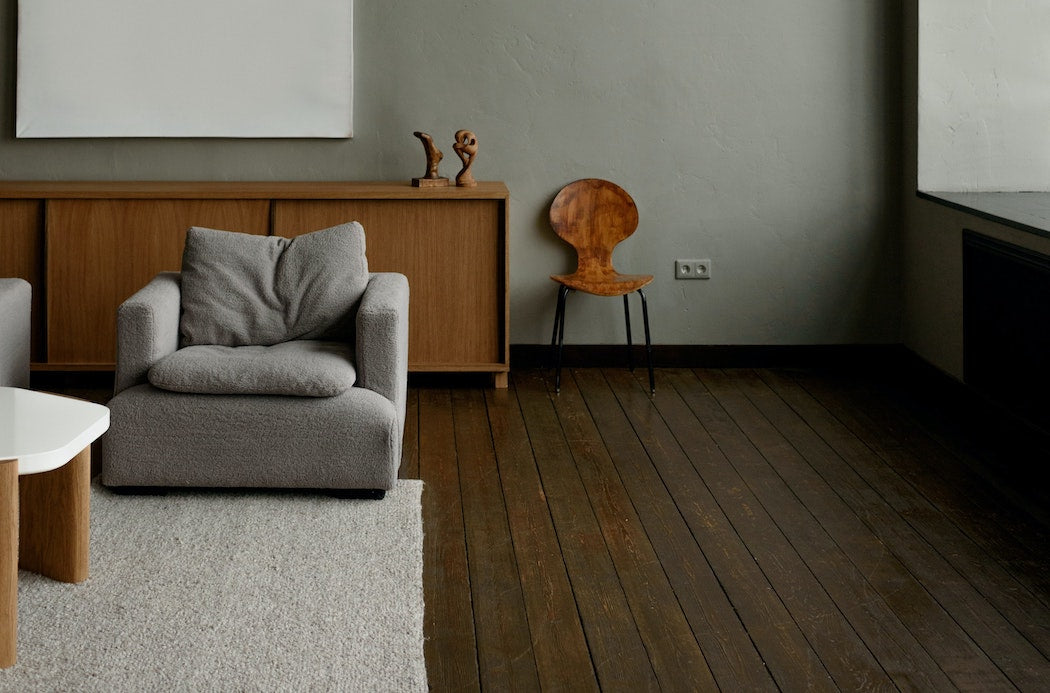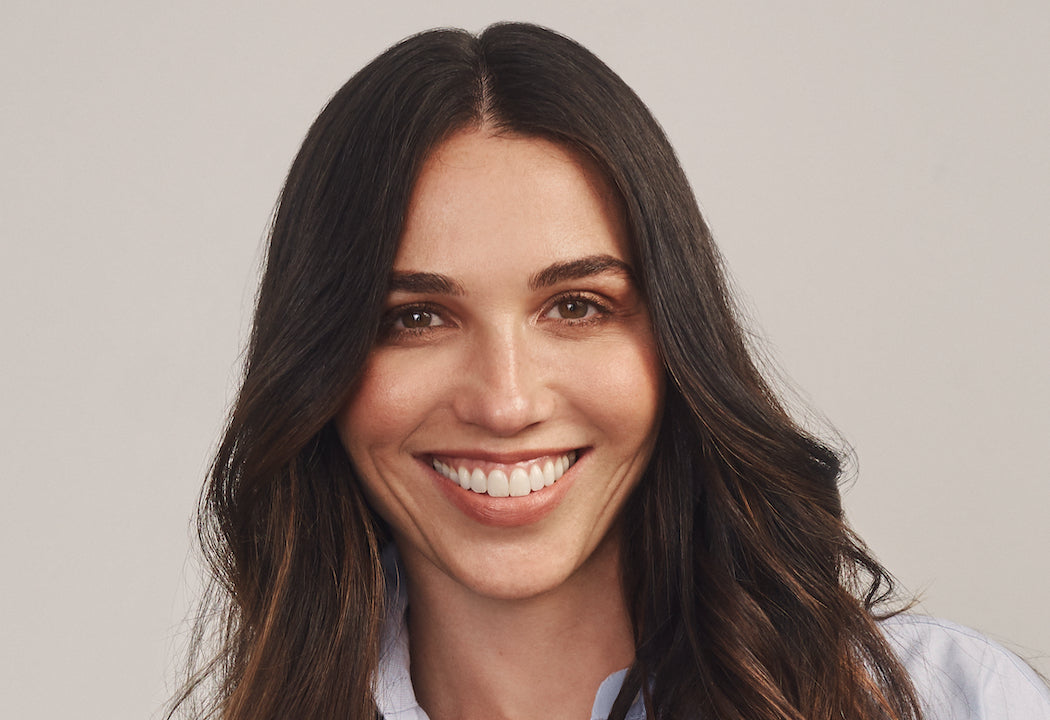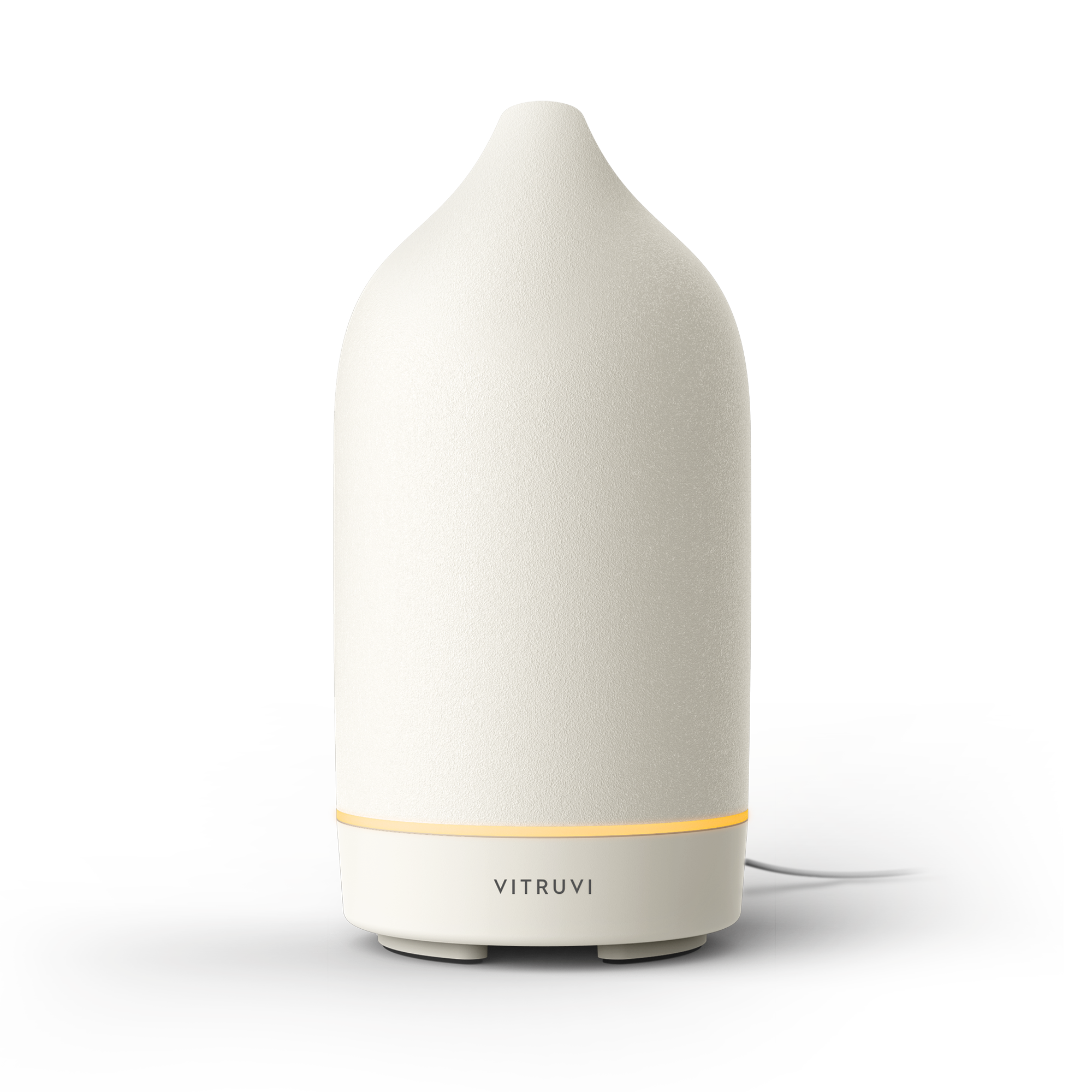Sage Grazer and Kendall Bird grew up next door to each other in sunny Los Angeles. As they got older, they drifted apart to pursue different life paths—Grazer became a licensed clinical therapist, and Bird was one of the first marketing hires at Snapchat. But they found their way back to one another when Bird started to look for a therapist after feeling burdened by both her personal and professional life.
“The experience was so overwhelming and frustrating. It took me eight months,” Bird reflects on a conference call, with Grazer also on the line. “I spoke to at least six therapists, spent over a thousand dollars, and was so frustrated by the process that it led me to reconnect with Sage.”
Ironically, while Bird was struggling to find a therapist, Grazer was struggling to get clients through the doors of her private practice. “I had a really hard time getting new clients because when you start your practice, people don’t just show up,” she shares. “I didn’t go to school to do marketing or business management, but when you start a private practice, you’re actually starting a small business.”
After the two women reconnected, Bird suggested that they build their own platform to bridge the gap between therapists and clients. “As a therapist who is not tech-savvy, I thought this was a wild idea,” Grazer admits. “But Kendall had this tech background and had been working in tech for almost a decade, so she had the knowledge to guide us through.” They launched Frame, a premium digital mental-wellness network and therapy-matching app, in May 2020.
The concept is simple: streamline the process and make therapy more accessible.
After creating an account, users answer 10 quick questions and are then matched with six accredited nearby therapists (the service is currently available in Los Angeles and is expanding to New York and Chicago in the near future). Similar to with a dating app, patients are then able to select which of those matches they’d like to try an appointment with.
“If you’re already struggling with some kind of mental health issue, depression, etcetera, it’s hard enough to get motivated to do a Google search, let alone make a few phone calls and then get turned away by a therapist who isn’t suited for you,” says Grazer. Frame makes it easy for patients to find the right therapist for them—and also makes each mental health professional’s job simpler by offering the backend tools for schedule management, payment processing, video conferencing, and marketing.
Both Grazer and Bird have known the value of seeing a metal health professional since they were young. “For me, therapy is very much about understanding myself,” notes Grazer, who started seeing a therapist when she was three years old as a result of her parents getting divorced. “The more you understand yourself, the more you understand other people, and the more you can understand how we all interpret the world through our own lens.”

Bird, on the other hand, started therapy in high school after being diagnosed with dyslexia and ADHD, which messed with her confidence. “Therapy helped me with my communication skills,” she says. “It gave me confidence and tangible tools. It also helped me understand my past, how the way I was raised impacted me, what environments stress me out, and what makes me tick.” Through the simple act of talking about therapy, Frame’s founders are helping destigmatize it. After all, when your physical body needs help, you go to a doctor—shouldn’t it be the same for your mind?
As far as calendar years go, 2020 was collectively a difficult one—and signing up for therapy is likely at the top of many 2021 resolution lists. For those new to therapy and perhaps nervous about the process, Bird says it is good to remember that a therapist isn’t going to push you beyond your limit—and also that things won’t change immediately. “They’re trained to ask you questions that will make you reflect on things in your life, but you won’t be forced to talk about anything you don’t want to,” she explains, adding: “I would love to set people’s expectation that you’re not going to get better in one session. It takes a lot of work, but it’s so rewarding. In the end, I always leave a therapy session feeling like a weight has been lifted off my back.”
No one goes through life alone, and there is nothing wrong with seeking help. “The more you put into it, the more you can address your immediate needs,” says Grazer. “So you might start because you’re anxious about coronavirus. But then the longer you’re in it, you might start to learn more about yourself, your childhood, how you grew up, and your perceptions of the world.”

